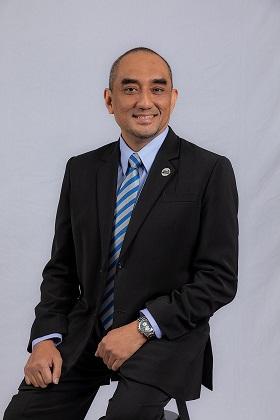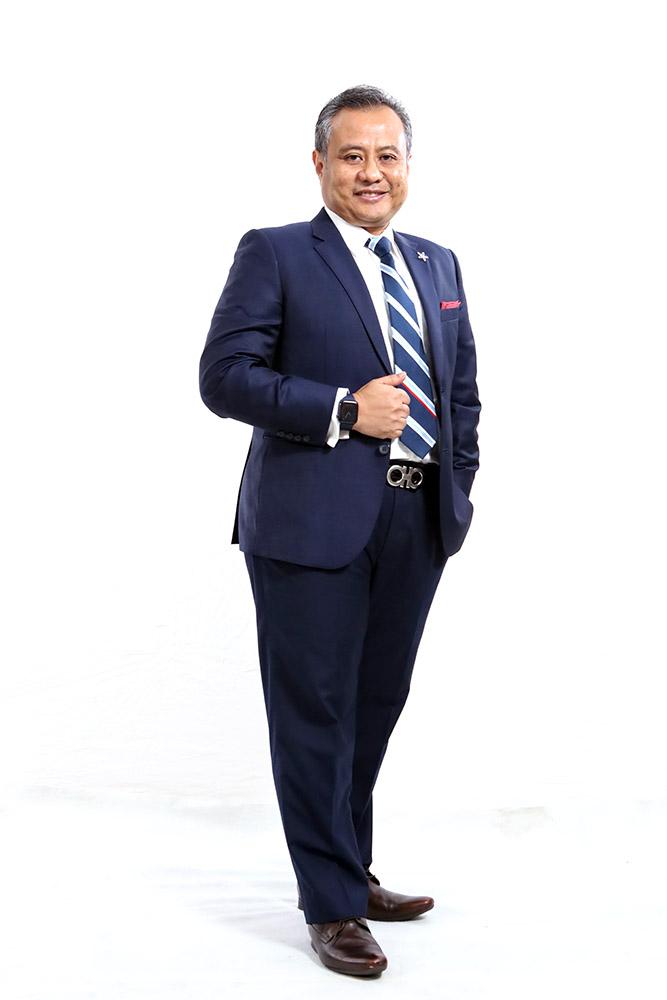Follow us on Telegram and on Instagram @humanresourcesonline for all the latest HR and manpower news from around the region!
share on
Some leaders hosted engagements with the HR and leadership teams, while some looked into enhanced communication channels for employees, internal training, and more.
Amendments to Malaysia's Employment Act 1955 came into effect on 1 January 2023, seeing the introduction of reduced working hours, rules around flexible work arrangements, extended maternity and paternity leave regulations, and more.
We've heard from legal experts on what these amendments entail, and in part one of this series, we also heard from five leaders on how they were preparing for the amendments to set in.
Now, in part two, let's hear from six more leaders on the steps they have taken – from engagements with the HR teams, to enhanced communication channels for employees, internal training, and more.
Interviews by Arina Sofiah and Priya Sunil.
[Read Part 1 here featuring leaders from Biomed Global, Vale, and more; and our legal experts' insights here.]
Razman Ismail, Chief People Officer, UEM Edgenta

As Razman Ismail, Chief People Officer, UEM Edgenta, summarises, the EA amendments are centred around key improvements in addressing employee wellbeing, in line with global standards of sustainable business practices. In that light, UEM Edgenta has set the foundation to successfully implement these amendments which will come into effect on 1st January 2023. Razman categorises the steps taken in this journey into three broad areas:
1) Policy & system
UEM Edgenta already has in place certain HR policies that only require minimal adjustments to align itself with the new amendments. Hence, the full review of impacted policies and practices took place early, along with the identification of system changes required to the group’s HRMS.
2) Team
While the broad implementation of EA changes resides with a few parties within HR (e.g. HR services, performance & rewards, HR business partners), it is imperative to Razman that all HR personnel are well informed about the changes to the group’s policies and benefits. That way, any queries from its workforce would be managed effectively. In driving this, UEM Edgenta engaged IR lawyers to conduct talks with the entire HR team, and held briefings led by in-house trainers to get everyone on the same page.
3) Communication
Given the effective date of 1 January 2023, Edgenta will be launching a series of communications closer to the date to convey relevant changes to its employees via a multi-channel communication approach (e.g. e-mails, newsletters, announcements on EDGE (the group’s HRMS) and briefings where required. Its HR Helpdesk (AskHR) is also ready to handle any queries.
According to the leader, UEM Edgenta is constantly reviewing its employment policies and benefits based on market standards and best practices to cater to its employees’ individual needs even before the amendments were announced.
“We have established flexible work arrangement policies and practices and 2022 saw the expansion of our flexible benefits programme. Looking ahead to 2023, along with the changes to the EA, we are thrilled to be able to soon announce a few new enhanced benefit items that are geared towards supporting our ESG agenda.”
The collective strategies are deployed to ensure a successful implementation of the EA amendments within the organisation, as well as improve employee welfare and satisfaction.
Oi Sin Chok, Regional HR Director, Carro

As Oi Sin Chok, Regional HR Director, Carro shares, myTukar (a Malaysian online car bidding platform powered by Carro) welcomes the amendments to the Act as announced by Malaysia’s Minister of Human Resources.
“We believe these amendments raise the standards of our employment laws, reflecting our status as a modern nation.”
As such, in line with its implementation on 1 January 2023, myTukar is fully committed to integrating the amendments into its HR policies.
As a company focusing on retail of pre-owned cars, a large proportion of the group’s workforce is required to be customer-facing, even on weekends and public holidays. Even so, the group has discussed in detail the contents of the amendments with its senior management, and is fully confident of adapting its operations to the amendments — including the 45 working hours per week, without any impact on its productivity and customer experience.
Aside from revisiting the employee handbook and contracts, the group believes awareness and education are key when it comes to the effective implementation of the Act.
“We plan to educate our employees on their rights under the Employment Act.
“Sexual harassment, for instance, is (original says “should be”) a matter to be raised up to management’s attention and not to be tolerated.”
Chok also touches on how flexible working arrangements should also be based on a culture of trust built between subordinates and managers in line with current new ways of working.
In the medium to long term, myTukar will reinforce employee awareness of relevant aspects of the Employment Act via its internal digital channels for learning and communication, which permits it to deliver bite-sized learning.
“We believe that through frequent reinforcement and communication, the letter and spirit of the Employment (Amendment) Act 2022 will be effectively adopted within all levels of our organisation next year.”
Haikal Akmar, Chief Human Resources & Learning Officer, UOA Group

In preparing for the changes in the Employment Act, UOA Group looked at three Ps — people, policy, and place.
In terms of people, Haikal Akmar, Chief Human Resources & Learning Officer, UOA Group believes the three most important stakeholders are the executive leadership team, the people managers, and its workforce.
“I regularly bring up this topic during discussions and meetings with the leadership team, especially with the CFO – who would proceed to work with our HR by looking at the cost impact, and subsequently find the best way to balance the act requirement with our work structure and model.”
At HR level, the group has in-depth meetings & discussions with the HR heads from various business units such as hospitality, property, construction, HQ based employees, and others, to see how these changes can be adopted at various business natures within the group. Much of the discussion revolves around having shorter working hours and flexibility, leading to the studying and reflecting on our various scheduling models, manpower planning, management, etc.
With that said, UOA recognises the importance of preparing its HR team to always be ready and on top of these changes, equipping them with ample knowledge and readiness to assist queries from its employees and/or people managers, providing fitting answers & solutions. However, the group also acknowledges that it is unrealistic to place excessive amount of work and pressure on the shoulders of its HR team, expecting them to consistently perform at their natural best.
“Hence, we actively work with our department’s HODs on scheduling systems while being mindful of the cost aspects.”
On top of that, the group also organises briefings and questions & answer (Q&A) sessions, including inviting and welcoming the Department of Labor Kuala Lumpur over to brief all its HODs on the respective changes and their roles. Beyond this signalling it’s commitment towards adopting the changes across the group, Akmar also wants UOA’s signal of commitment to be met with preparation.
“Because at the end of the day, commitment without preparation and vice versa creates confusion, the opposite of what we want to provide to all – clarity.”
As for policy, it consistently makes the necessary revisions, including updating its employee handbook. It enhances its communications on these changes, identifying the best-fitting communication channels in terms of accessibility.
Haikal shares: “Emails, memo, employee portals, mobile phone messages and the notice board; providing our people with convenience, visibility, and accessibility bundled into one.”
Along with these changes, UOA wants to ensure its working place is always supported by managers that possess flexibility to tailor their leadership skills to the people, as well as live the organisations values.
“Managing people with diverse personalities, responsibilities, ambitions, and pet peeves is an art and can be very challenging (most of the time) and we want our HODs to do it with integrity, empathy, and compassion, while simultaneously not lose sight of the organisation’s values when managing their team at work.”
As much as HR takes care of the people, people problems often start from the department itself, he points out.
“Therefore, we want our managers to competently identify, acknowledge, and address the issues when it arises.”
Through the group’s UOA Academy, it constantly facilitates and provide trainings to its HODs with the aim of instilling people leadership competencies within them. Such training consist of managing performance, disciplinary handling, managing expectation, leadership programmes, and many more.
Ending off, Akmar shares: “Changes are the only constant in our lives, and the Employment Act is no different. And our three pillars – the three Ps; people, policy, and place, provides us with a solid foundation in embracing the changes of the present and future.”
Nadiah Tan Abdullah, Chief Human Resources Officer, S P Setia

To Nadiah Tan Abdullah, S P Setia's Chief Human Resources Officer, being a Malaysian Employers Federation council member has allowed her access to better insights in terms of the data and information available, she shares. She saw the need for the company to be well prepared for the implementation of changes, seeing that it would have "a lot of impact" in terms of costs and in how the company manages its workforce.
She explains: "Obviously the different coverage now has a major impact, and we are departing away from the old ways of just covering just that scope of the RM2,500 salary bracket."
Talking about how she and her team prepared for the changes to take effect, Nadiah shares four steps taken:
First, they looked at the areas that will be impacted, and what the team needege what we need to change d to change in terms of how it collected certain data. "At the end of the day, when you speak to the management, you need to show the data - for example, the OT calculation that has some changes," she elaborates.
Second, the team looked at how to change what needed to be changed – whether it is rostering, or the organisation is structured.
The third, was to include those conversations in the management discussion. Nadiah shares: "We have a monthly management meeting, and we do them early enough so that all the stakeholders will be informed. They expect HR to tell them: okay, this is it and this is what's going to be the difference, and how we are going to approach it in the future."
Finally, it involved looking at commitment. "We also have to update the board because it has long-term implications from a staff cost perspective and also from the way we will manoeuvre us being the 'employer of choice' because those changes will require us not just to change the way we work, but also how we want to package the branding of us as a company.
"For us, we have already effected some of the changes, such as having 98 days of maternity leave, which we launched three years ago.
Nadiah also points out that the matter has also been about seeing how the team could optimise processes and look at how some things could be done better. "We don't want to say we are just responding to the changes in the law. Instead, we want to be seen as a leader company in this industry. We want to be leading the trends."
Syukri Sudari, Chief People Officer, Affin Bank Group

Syukri Sudari, Chief People Officer, Affin Bank Group, has already been working on their flexible work arrangements over the past two years. He shares: "If we did not have the pandemic and we suddenly brought about that revision, people would be struggling to adapt to the changes. Since we now have flexible working in place, in terms of culture and preparation, we have been ready [for the Employment Act amendments].
"In the past, it was just a matter of the company offering flexible working to staff, but now with it as part of the regulations, it will be easier to have such an arrangement in place. So to me, it is quite handy in that sense."
Apart from that, the leader and his team have also looked into the costing that comes with adapting to the amendments. He affirms the goal of it all: " As an employer, looking at the employees' welfare is paramount to the whole equation. At the end of the day, this is a win-win situation for the employer and employees, as I always believe that a happy employee leads to happy customers. That's how I look at it."
Shazmi Ali, Vice President HR, Shell

While Shell employees are impacted in some areas of our operations, as a whole, the company has not been impacted "so much" by the amendments, as Shazmi Ali, Vice President HR, Shell tells us. Thus, the company has had an easier time adjusting to the changes, he adds. so it has been easier for us to adjust.
To prepare for any changes, Shazmi and his team made it a point to brief all the employees who were impacted, as well as the management team.
"Everyone has been supportive. We are a company that will always follow the local legislation - whatever it is, and are fully supportive of the changes."
Photos of interviewees: Provided
share on


